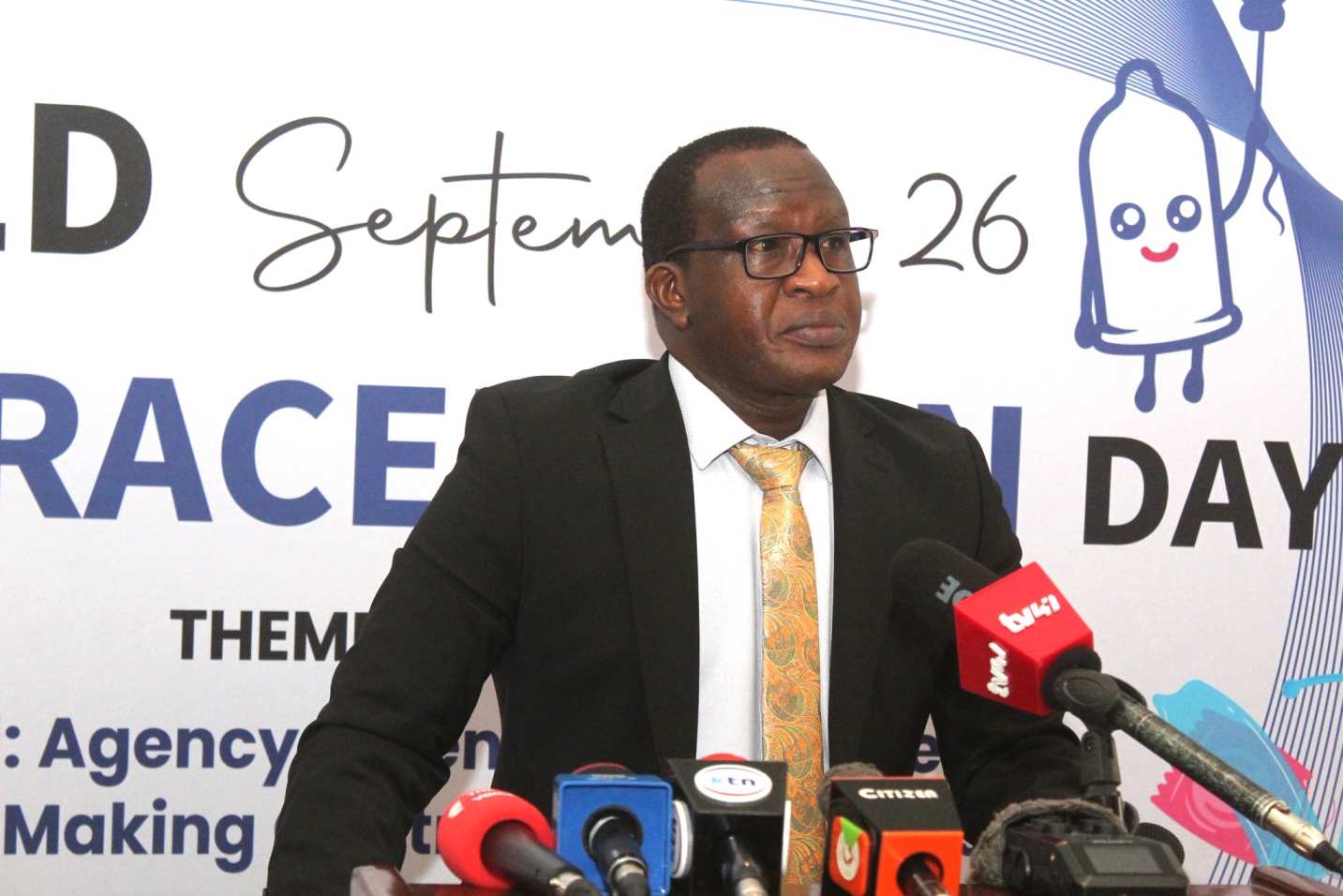Kenya is taking bold steps to strengthen access to family planning as part of its FP2030 commitments, unveiling new national targets aimed at improving reproductive health outcomes.
The announcement was made during a media briefing ahead of World Contraception Day on September 26, 2025, where the Ministry of Health outlined its strategy to expand contraceptive access and reduce adolescent pregnancies.
Dr. Edward Serem, Head of the Division of Reproductive, Maternal, Newborn, Child and Adolescent Health, said the government is determined to raise the modern contraceptive prevalence rate among married women from the current 57 percent to 64 percent by 2030.
He added that unmet need for family planning, currently at 14 percent, should decline to 10 percent within the same period.
Equally significant, the Ministry has set a near-term goal of reducing adolescent pregnancy rates from 15 percent to 10 percent by 2025.
“Kenya’s vision is a future where every pregnancy is wanted, and where no woman is denied access to the family planning method of her choice,” Dr. Serem said.
In outlining Kenya’s health sector, Dr. Serem highlighted recent innovations designed to give women and families more options and greater autonomy in reproductive health.
These include the rollout of self-administered injectables such as Depot Medroxyprogesterone Acetate – Subcutaneous (DMPA-SC), new contraceptive technologies like the hormonal intrauterine device (HIUD), and the adoption of digital systems to track and manage contraceptive supplies.
According to the Ministry, these measures are expected to improve convenience for women, reduce stockouts at health facilities, and increase uptake of modern contraceptives.
By diversifying options and streamlining supply management, the government hopes to close the gaps that currently prevent some women from accessing the services they need.
While the targets are ambitious, the Ministry emphasized that sustainable domestic financing is essential for success.
Serem called for more investment in family planning programs to ensure uninterrupted availability of contraceptives nationwide.
He further noted that achieving the 2030 goals will require stronger collaboration between the national government, county governments, development partners, civil society organizations, and local communities. These partnerships, he said, are already proving vital in advancing access to reproductive health services across the country.
He also noted that partnerships with counties, development partners, and communities remain key to ensuring that no woman is left behind in accessing the family planning method of her choice.
Kenya’s announcement came ahead of the national commemoration of World Contraception Day, scheduled for September 26, 2025, at the Makueni County Referral Hospital Grounds in Wote.
The Ministry of Health will lead the event, bringing together health professionals, policymakers, and community representatives to highlight the progress made and renew commitments toward universal contraceptive access.
This year’s global theme is “A Choice for All: Agency, Intention and Access,” with Kenya adapting it as “Chaguo La Wote; Making Contraception Accessible.” The theme underlines the country’s focus on equity and inclusivity, ensuring that women of all backgrounds have both the right and the means to make informed reproductive health decisions.
As the targets are rolled out, the success of the plan will depend on sustained political commitment, adequate funding, and active community engagement.
The Ministry of Health reaffirmed that it remains committed to working with all partners to ensure that Kenya meets, and possibly exceeds, its FP2030 family planning goals.
